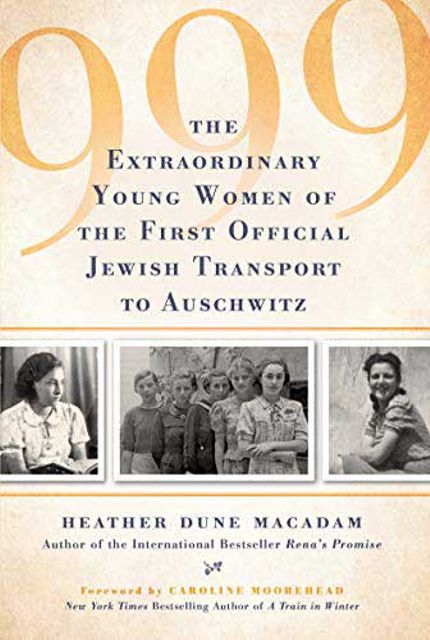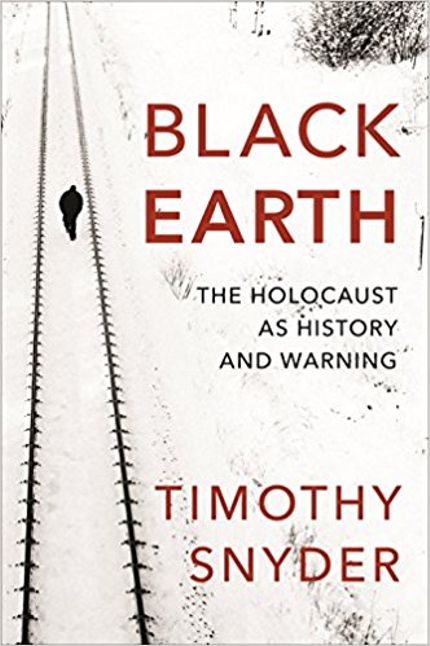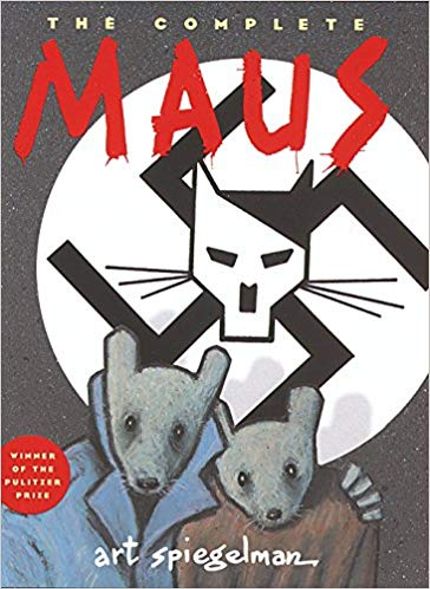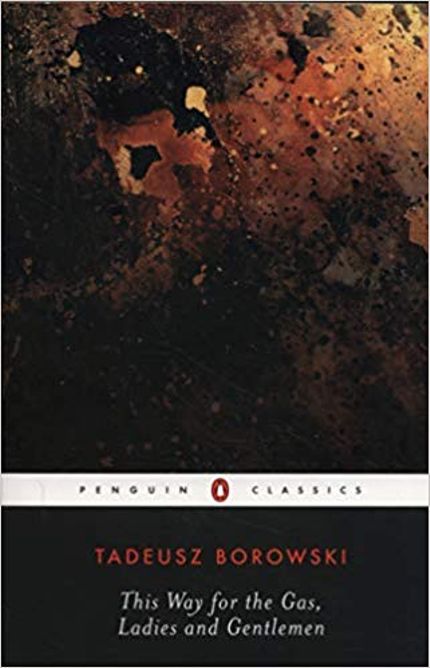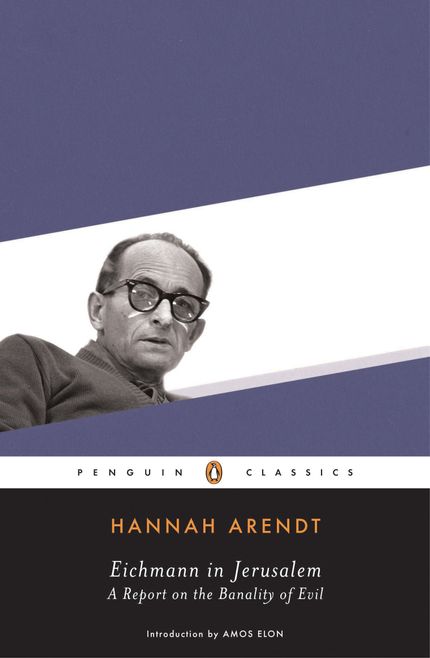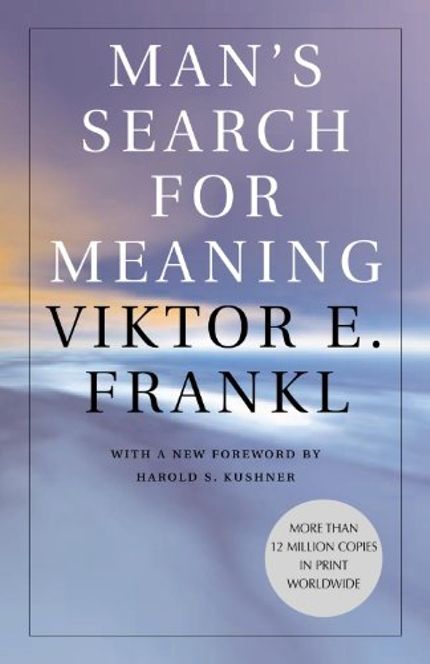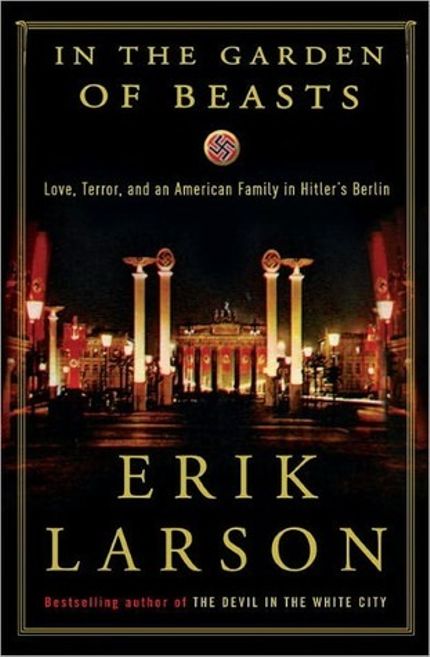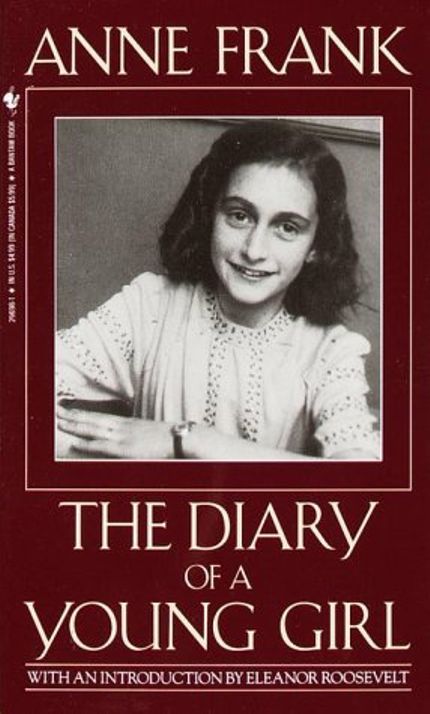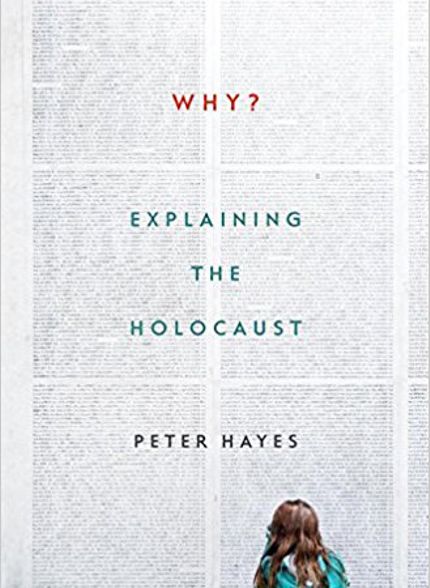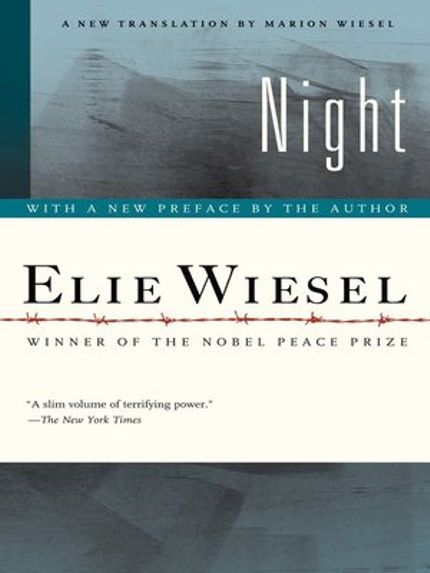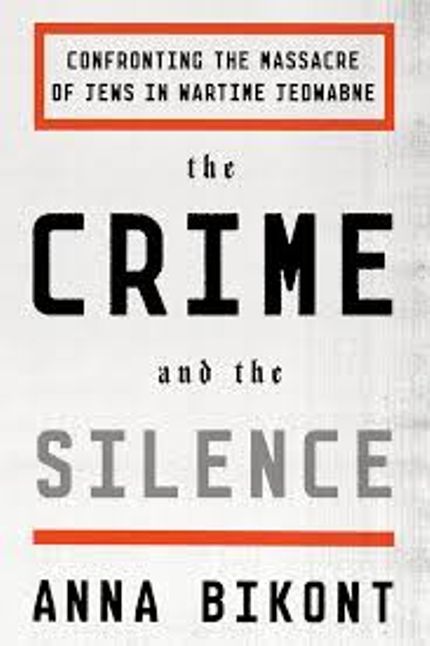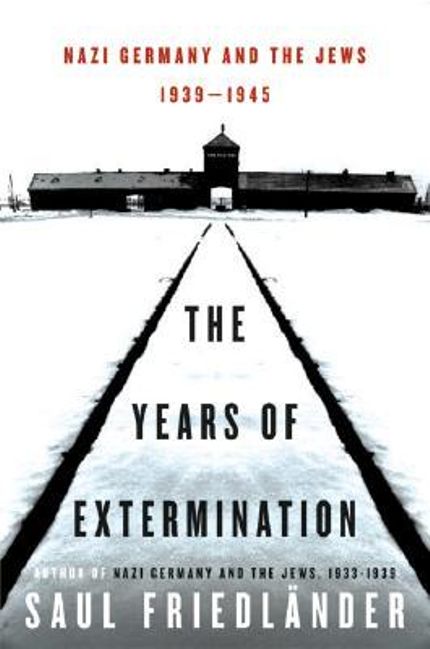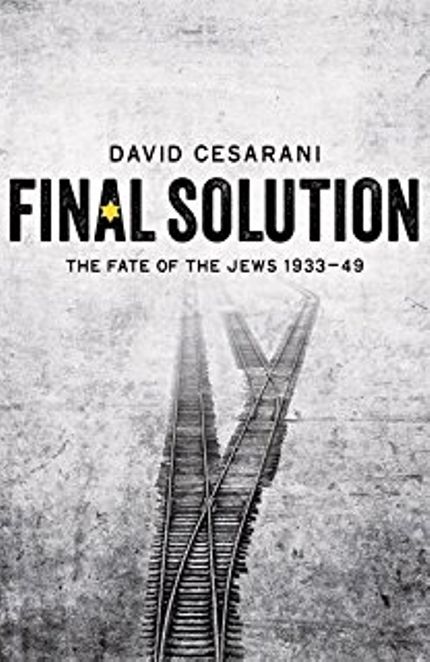With so many books about the Holocaust available, it can be daunting to choose which ones to read. From memoirs and historical accounts to heartrending first-person testimonies, these nonfiction works provide ways for us to understand the horrors of concentration camps and the courage of the victims who endured unimaginable brutality.
The Holocaust, also known as the Shoah, was the state-sponsored persecution and mass murder of six million Jewish men, women, and children and millions of others by Nazi Germany and its collaborators during WWII. Now more than ever it is critically important that we remember the atrocity and fight to ensure it never happens again.
The narratives below span complete historical studies and searing memoirs to stark visual testimonies created by the prisoners of concentration camps. Each is an essential read, and will get you as close to the history as possible. From giants of the subject like Elie Wiesel's Night to lesser-known tales of the Jewish ghettos that preceded the "Final Solution" of concentration and death camps, these Holocaust books seek to enlighten their readers.
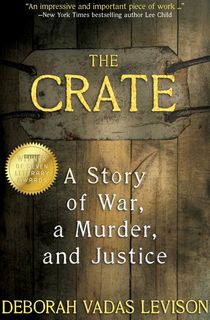
The Crate
A young couple who survived Europe's ghettos, death marches, and concentration camps thought they had put the past behind them when they fled the painful memories of their homeland and resettled in Canada. Little did they know that fresh trauma lurked beneath the floorboards of their picturesque cabin: a crate with disturbing contents, waiting to be discovered. The couple's daughter, award-winning journalist Deborah Vadas Levison, takes readers through the saga of her parents' ordeals during the Holocaust and the stunning true crime story that emerged years later.

Geographies of the Holocaust
This book examines the geography of the Holocaust at all levels of the human experience, from the continent of Europe to the experience of the individual bodies involved. Based on six groundbreaking case studies, this scholarship brings together historians and geographers to explore the scenes and spaces of the genocide. Examples include landscapes of specific locations such as massacre sites, deportations and evacuation marches, concentration camps, and ghettos.

The War Against the Jews, 1933–1945
First published in 1975, Lucy Dawidowicz's groundbreaking book traces how German anti-Semitism evolved into Hitler's Final Solution—the state-sponsored mass murder of European Jews. She argues that genocide was integral to the Third Reich's goals. According to the Los Angeles Times, “so much has been written [about the Holocaust] that it might seem little is left to be said...Dawidowicz proves otherwise.”
Related: The Remarkable Life of Abba Kovner, the Holocaust Survivor Who Sought Revenge

The End of the Holocaust
In this surprising work, Alvin H. Rosenfeld posits that the surge in Holocaust-related books, movies, television shows, museums, and public monuments have watered down the event's importance and tinged it with sentimentality in our collective memory. Investigating various events and cultural shifts, Rosenfeld illustrates the sociological forces that have minimized the Holocaust in public discourse. Holocaust survivor and author Elie Wiesel wrote of this book, "[Rosenfeld's] new volume honors his entire life as teacher and writer attached to the principles of intellectual integrity and moral responsibility. Here, too, he demonstrates erudition and knowledge, a gift for analysis and astonishing insight."

Reframing Holocaust Testimony
The organizations that have collected video testimonies from the few remaining Holocaust survivors are working on methods by which to educate future generations while preserving the legacy of the past. This introspective book takes a look at how historical testimony is preserved and how each institution's unique interview methods can affect the final outcome of the project.

Blowback
After the Holocaust, the US recruited former Nazis—many of them unrepentant mass murderers—for the purposes of propaganda, psychological warfare, and military operations against a new enemy, the Soviet Union. With the help of the US, these Nazis' crimes were buried and forgotten in order to use them as intelligence assets. This account includes a new, previously unseen author's introduction to the CIA's declassification of Nazi-related records.
Related: 8 Moving Historical Fiction Novels About the Holocaust

All Honorable Men
During WWII, American companies liaised with German corporations that helped fund the Nazi party, even though they knew exactly where their money would go. In fact, Wall Street's greed enabled Hitler's atrocities and hindered the Allied cause. James Martin uncovered this connection when he worked as the director of the Division for Investigation of Cartels and External Assets in American Military Government.
Martin's efforts to decartelize Germany failed primarily due to pushback from his boss, a former investment banker. Reflecting on his discoveries, Martin has stated that, “we had not been stopped in Germany by German business. We had been stopped in Germany by American business," implying that American corporate interest was a leading reason for corruption in Germany.

999: The Extraordinary Young Women of the First Official Jewish Transport to Auschwitz
This recent release is sure to become a classic of Holocaust nonfiction. Heather Dune Macadam excavates an untold story of the WWII genocide with the 999 young women who formed the first Jewish transport to Auschwitz. Although Auschwitz itself had been a POW camp and site of major executions for some two years upon the arrival of this transport, the arrival of these women marked its shift into a concentration and extermination camp—the single most deadly camp in the Holocaust. Macadam brings the stories of those lost to life through detailed research and the words of the few who survived.
Related: Women in World War II Were Even Braver Than You Realize

But You Did Not Come Back
Marceline Loridan-Ivens was 15 when she and her father Szlhama (Schloïme) were arrested in occupied France and sent to the Nazi death camps—he to Auschwitz and she to Birkenau. Schloïme’s last contact came in the form of a note, scribbled on a scrap of paper and smuggled into Marceline’s camp. To Marceline, the handwritten flash of life was was proof that she and her father "still existed." But while Marceline ultimately survived the Holocaust, her father did not. In this powerful memoir, which was a runaway bestseller in France, the author details her story of trauma and survival in the form of a letter addressed to her murdered father. Deeply affecting, But You Did Not Come Back confronts the history of the Holocaust and implores all of us to remember.
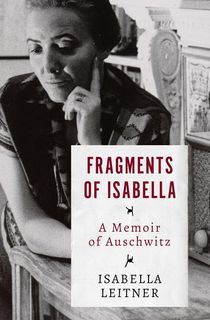
Fragments of Isabella
Isabella Leitner was about 10 years older than Anne Frank when the Nazis took her family to Auschwitz in 1944. Her mother and one of her sisters were murdered, leaving Isabella and her three other sisters with only each other to depend on for survival. Her experience and account offers an alternate and unique perspective on the Holocaust. Leitner’s memoir of her experience during the Holocaust has become a classic account and was nominated for a Pulitzer Prize.

Jack and Rochelle
An authentic love story with the Holocaust as its backdrop, this memoir begins pre-war with Jack asking Rochelle for a dance, and details their relationship as the horrors of World War II unfolded. Although separated for years, the couple was reunited in a forest after escaping from the Jewish ghettos they’d been forced to move to. Written based on interviews with their son, Lawrence, the book details how they joined a group of Jewish partisans, led by Simcha Zorin, and survived the winter of 1942-43 together.

Were We Our Brothers' Keepers?
If you’ve ever wanted to know how people and the press in America responded to the Holocaust while it was happening, this historical account of the reactions to events like the uprising in the Warsaw ghetto, Kristallnacht, and the deportation of Hungarian Jews to Auschwitz is exactly what you should be reading. Covering six events in total, Rabbi Lookstein provides an honest examination into the flaws and failures of the reactions of American Jews during the Holocaust.
Related: The Courageous Acts of Resistance That Led to the Warsaw Ghetto Uprising

In the Name of Humanity
Even after the scale of the Nazis’ attempt to eradicate Jews and other “undesirables” came to light, few organizations were willing or able to directly step in to close concentration camps or impact their ability to function. Into the breach stepped six Swiss citizens who worked to save an untold number of people. Meanwhile, as the war wound to a close, Henrich Himmler (known as the architect of the Holocaust) reached out to the small group to try to close the camps—before Germany surrendered. Wallace resurrects the inspirational tale of little-known heroes.
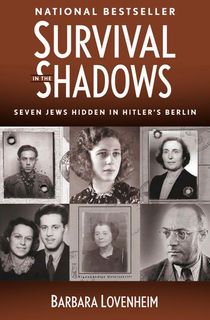
Survival in the Shadows
Berlin was the heart of Nazi Germany—so how did two families survive hidden in its depth through the entirety of World War II? This is the fascinating story of seven individuals who went underground (literally) to save themselves. With the help of other Berliners, all seven made it through the Holocaust, despite being on the brink of starvation when they were rescued. Four members of the group were married after their liberation, three of whom spoke in depth with author Barbara Lovenheim to assist with the writing of this inspirational story.
Related: The Archive Recommends: 10 History Books Our Readers Love the Most
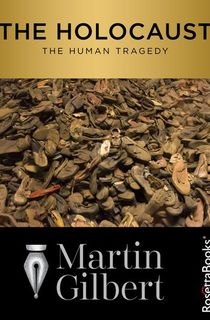
The Holocaust
Acclaimed historian Martin Gilbert delivers the definitive account of the Holocaust in this staggering work that Elie Wiesel says, "must be read and reread." The author draws on eyewitness accounts, survivor testimonies, and first-hand historical documents to craft his narrative, tracking the Holocaust’s history from the origins of anti-Semitism in Europe to Hitler’s rise to power and the systemized slaughter of the Final Solution. In addition, Gilbert documents episodes of Jewish resistance and the efforts of non-Jewish neighbors and strangers who risked their lives to help those marked for death. Sweeping in scope and unflinching in its approach, The Holocaust is an essential entry to the library of Holocaust writing.

The Clandestine History of the Kovno Jewish Ghetto Police
Although Jewish ghettos were a key step in the “Final Solution”, works specifically about the experience in these segregated and barbed wire-enclosed neighborhoods are much rarer than those about concentration camps. In this fascinating narrative, Samuel Schalkowsky shares the narrative composed by the Jews who served as the police in the Kovno Ghetto. These men were caught between their own people and the demands of the Nazi organizations. Their story shows a side of the Holocaust that is underexamined.

Black Earth: The Holocaust as History and Warning
Published in 2015, Timothy Snyder’s New York Times bestselling book re-examines the atrocities of the Holocaust with the 21st century in its headlights. Based on new sources and lost testimonies from survivors, Snyder’s book reminds the reader of the terror and darkness that Hitler inflicted on Europe and how it may not be as far in the past as we like to think. Snyder insists on the dangers of forgetting the reality of the past and emphasizes how easily humans can behave differently in times of panic and war. His book is both a history and a plea: Don’t dismiss the past—or the future.
Related: “The Banality of Evil”: The Take-Down of Holocaust Mastermind Adolf Eichmann

The Complete Maus
Maus has become rightfully famed for transcending its form to appeal to many a non-graphic novel reader. Art Speigelman illustrates his father’s own experience in the Holocaust—portraying Jews as mice and Nazis as cats. A story within a story, Speigelman also explores how his father was affected after escaping the Holocaust and the family’s life in America in the mid-20th century.
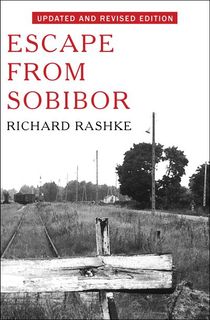
Escape from Sobibor
Although it was the smallest of the Nazi death camps, Sobibor was also the site of the biggest prisoner escape during the war. More than 300 people escaped into the woods after killing SS officers and guards, and breaking down the barbed wire fences that imprisoned them. Five years after its publication, the book was adapted into a TV movie starring Rutger Hauer and Alan Arkin. Richard Rashke’s journalistic and historical approach to telling this story, by basing it on interviews he conducted with survivors, makes his account both vivid and demonstrative of the courage and strength of the prisoners at Sobibor.

This Way for the Gas, Ladies and Gentlemen
Borowski began writing his collection of short stories about his time in Auschwitz and Dachau almost immediately after his release in 1945. Neither a Jew nor a resistant fighter, Borowski was arrested due to his fiancée’s resistance activities. Borowski offers a different perspective on concentration camps as a political prisoner; the immediacy of his narrative also lends a brutality and dash of black humor often missing in more removed memoirs of the time.

Roman's Journey
In September 1939, Germany invaded Poland. Hitler’s invading armies soon reached Roman Halter’s hometown of Chodecz, a village due north of Lodz and home to over 800 Jews. Halter was 12 years old when he and his family witnessed the Nazis march through their village to the cheering delight of their German Polish neighbors. Within days, the family home was seized and young Halter was forced into slavery under a local SS leader. In Roman’s Journey, Halter recounts his ensuing six-year fight for survival in Nazi Europe. The Holocaust would claim the lives of his family and devastate the Jewish community of his childhood home. Halter himself endured the Lodz ghetto, Auschwitz, the Stutthof concentration camp, and a slave factory in Dresden—only to return to Chodecz once the war was over and find it a ghost of its former self.
Related: Reminder That The Nazis Made A Top General Kill Himself

At the Mind’s Limits
Born in Vienna in 1912, Jean Améry emigrated to Belgium and joined the Resistance Movement after Hitler’s Anschluss (annexation) of Austria in 1938. Nazis arrested Améry as a political prisoner in 1943, subjecting him to torture before sending him to Auschwitz. In this searing collection of five autobiographical essays, the renowned author strives to process the enormity of the Holocaust, describing his two-year ordeal of mental and physical survival in the Nazi concentration camps and his efforts to comprehend the sadistic nature of the Third Reich.
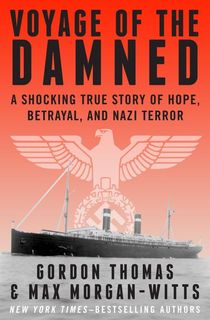
Voyage of the Damned
Just before World War II began, a German ship called the St. Louis departed from Hamburg with 937 Jews attempting to escape Nazi persecution onboard. What they didn’t know was that the voyage was actually a part of a Nazi propaganda ploy to show the world that Germany was not the only country that could not accept Jews, and they were not going to receive any refuge in Cuba. Gordon Thomas, an Edgar Allan Poe Award–winning author and well-respected journalist, tells the completely true story of treachery and suffering that was also adapted into an Academy Award–nominated film.
Related: An Awful Car Killed More Nazi Generals Than World War II

Eichmann in Jerusalem
For a more philosophical bent, you can’t go wrong with Hannah Arendt’s examination of evil during the Holocaust. The New Yorker sent Arendt to cover the trials of Adolf Eichmann, one of the key figures in planning and orchestrating the Final Solution.

Imprisoned
In 1979, writer and artist Arturo Benvenuti set out to meet with as many survivors of Nazi-Fascist concentration and extermination camps as he could. He spoke with and learned from dozens of men and women who endured the horrors of places like Auschwitz, Terezín, Dachau, and Ravensbrück. Many of these survivors not only recounted their experiences but also shared with Benvenuti the artwork they produced while imprisoned at the camps. Years later, Benvenuti assembled their pencil and ink drawings, charcoal sketches, watercolors, and engravings into this striking volume. Imprisoned delivers a visual testimony of the atrocities of the Holocaust, created by those who witnessed and experienced its brutality. Its images are indelible and, as Primo Levi puts it in his introduction, "replace the word, but with an advantage—the say what the word is not able to."

Resistance
Written by Israel Gutman, both a survivor of the 1943 Warsaw ghetto uprising and a Holocaust historian, this chronicle disproves the common misconception that Jews were submissive when facing the Nazis. Using his own experience and the diaries and letters of others, Gutman recounts the unimaginable battle between hundreds of starving, poorly armed Jews and a well-equipped, trained Nazi army after a Nazi police commander ordered that the ghetto be burned along with all of its inhabitants. The fearlessness and strength of those who fought in the uprising is undeniable in this record of the largest Jewish revolt during World War II.
Related: 13 Books That Explore the History of World Religions

Never Again
Martin Gilbert has written a number of vital books about the Holocaust. Here, the historian blends newspaper clippings, historical records, firsthand recollections, and treasured family photographs to produce a multifaceted portrait of the Jewish people in pre- and post-war Europe. Rich with imagery, Never Again chronicles the atrocities of WWII for a new generation and illustrates the human toll of the Holocaust by putting names to faces and documenting the life stories of individual victims and survivors. All those interested in reading more by Gilbert should next check out Holocaust Journey, a poignant travelogue wherein the historian embarks on a two-week journey visiting crucial Holocaust sites.
Related: 21 Essential World War II Books That Examine Every Angle of the Conflict

Man's Search for Meaning
Viktor Frankl’s classic of the genre remains a landmark in its exploration of life in Nazi concentration camps. Frankl was a prisoner of four separate concentration camps during the Holocaust. His trauma informed his career as a psychotherapist and his creation of logotherapy, the idea that finding what’s meaningful for a particular person is what drives joy and fulfillment, rather than chasing momentary pleasures. This insightful and deeply-felt book will remain with you long after you close its chapters.

The House at Ujazdowskie 16
Karen Auerbach traces 10 Polish Jewish families who strove to reconstruct their lives amid the post-war rubble in this moving narrative of loss, rebirth, and survival. WWII laid waste to Warsaw, reducing the once-vibrant Polish capital to razed city blocks and streets of debris. Among the buildings that escaped destruction were a handful of historical residences and apartment houses along Ujazdowskie Avenue. Nazi officers had stationed themselves in these buildings during the German occupation. In the late 1940s, with the war officially over, these Polish Jewish families chose to settle in Warsaw, reclaiming an apartment building at 16 Ujazdowskie Avenue and, piece-by-piece, constructing a new community. Thoroughly researched and supplemented with family photos and personal correspondences, The House at Ujazdowskie 16 tells the story of these survivors and their efforts to reconcile the trauma of the past with the promise of a better future.
Related: 10 Survival Stories That Reveal the Power of the Human Spirit

In the Garden of Beasts
Named NPR’s best book of the year, as well as a New York Times Notable Book, Larson’s historical account follows William E. Dodd and his family to Berlin in 1933 when he was appointed as America’s first ambassador to Nazi Germany. As the Dodd family witnesses the escalation of Hitler’s campaigns, including censoring of the press and attacks on Jewish people, Dodd became more aware of the true nature behind Hitler’s regime and how few people back home were realizing it. Larson, the author of The Devil in the White City, captures the atmosphere of Europe during this critical year while also including close-up depictions of major Nazi politicians.

The Diary of a Young Girl
Often the first encounter young students have with the history of the Holocaust, Anne Frank’s diary is a firsthand account of a young Jewish girl’s experience living in hiding with her family from 1942 to 1944. Although German-born, Frank’s family moved to Amsterdam and hid there during the German occupation of the Netherlands. In her diary, she recounts her daily experiences while in hiding—facing hunger and frustration. Frank’s powerful account reveals the experiences of the Holocaust from the unique perspective of a 13-year-old girl living in constant fear and uncertainty.

Why?: Explaining the Holocaust
Written by a professor of Holocaust Studies at Northwestern University, Why? asks the core questions about the Holocaust, including: Why these people? Why this country? Why did it happen the way it did? Hayes answers these questions while clarifying misconceptions and putting his own, well-informed responses forward. Hayes asks why there wasn’t more resistance and why more people didn’t provide aid. Published only a year ago, this comprehensive study addresses the eight most significant questions about the Holocaust with the inclusion of important new insights and perspectives.

Night
Remaining on the New York Times Best Seller List for 80 weeks after being chosen for Oprah’s book club, Wiesel’s memoir details his time in concentration camps—both Auschwitz and Buchenwald—as a teenager. He wrote the original version of Night before Holocaust studies even existed, in the 1950s. Different from Anne Frank’s diary, which did not include her time in a concentration camp, Wiesel’s story depicts the truly horrific and heartbreaking details of his suffering, such as his separation from his mother and sister—whom he never saw again—and his father’s slow, painful death.
Related: The 16 Best Autobiographies To Change Your View of History

The Crime and the Silence
The first part of the title of Bikont’s book, "The Crime," refers to the 1941 massacre in Jedwabne, a town in northeastern Poland, in which a mob of Catholics burned hundreds (possibly 1,600) Jews alive in a barn. This National Jewish Book Award winner not only takes the reader through the history of the massacre itself, but also addresses "The Silence": the 60 years it took for the guilty to be held accountable for their actions. It wasn’t until 2004 that it was officially declared that it was the Catholic-Polish residents of Jedwabne who committed this atrocity rather than the Gestapo and Hitler’s forces. This was partially due to the publication of Jan Gross’s book Neighbors: The Destruction of the Jewish Community in Jedwabne, Poland, another important read, which revealed the untold, true story of the massacre.

Nazi Germany and the Jews, 1939-1945: The Years of Extermination
Rather than targeting one specific event or the experience of one individual, Friedlander presents a wide-ranging history for which The New York Times reports he "read virtually every printed source and secondary work...in English, German and French." Tying in some of the most well-known individuals associated with the Holocaust, like Anne Frank, as well as those who are lesser known, Friedlander uses contemporary diaries and witness statements from postwar trials to create a narrative that truly captures the Holocaust. With the driving idea that it was ultimately Adolf Hitler who is solely to blame for the extermination, this book includes lots of information and complex ideas without getting bogged down or distracted.

Final Solution: The Fate of the Jews 1933-1949
Published just three months ago, Cesarani’s new historical work examines the Holocaust from both a wider and deeper perspective—offering new insights into what the goals of the Nazis were. Cesarani focuses on Nazi military campaigns, as well as the reality of the sexual abuse and violence that women faced while imprisoned in camps. The book includes new information acquired from the opening of Soviet archives, discovery of diaries, reports of victims, and the declassification of Western intelligence service records, all of which prove that history always has more to tell.
This post is sponsored by Kensington Books. Thank you for supporting our partners, who make it possible for The Archive to continue publishing the history stories you love.

